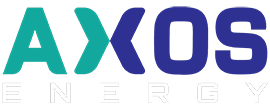- Date Posted: 20 June 2024
Clean Fuels: A Strategic Advantage for Trucking Companies Aiming to Win Freight Bids in a Carbon-Conscious World
- 4 min read
Thank you for your interest in AXOS Energy. We’ll be in touch shortly!
In the meantime, below you’ll find additional resources, frequently asked questions and more!
When we say AXOS Energy is your partner in sustainable transportation solutions, we mean it!
In addition to offering the clean fuel itself, we pride ourselves on our ability to ensure your fleet never skips a beat, through accurate scheduling and delivery of your fueling needs, time and time again.
Clean fuels, also known as alternative fuels or low-carbon fuels, are fuels that produce fewer harmful emissions compared to traditional fossil fuels. They are important for the trucking industry because they help reduce air pollution, mitigate climate change, and improve public health by emitting lower levels of greenhouse gases and harmful pollutants such as nitrogen oxides (NOx) and particulate matter (PM).
Clean fuels offer several environmental benefits, including reduced greenhouse gas emissions, improved air quality, and decreased dependence on fossil fuels. By using clean fuels, trucking fleets can lower their carbon footprint and contribute to global efforts to combat climate change.
Clean fuels offer a tremendous opportunity in the trucking industry, to reduce your carbon footprint, while saving you on fuel costs in the process. See for yourself!

Use our calculator to see how switching to clean fuels can impact your fleet’s emission output, and increase profitability through fuel cost savings.
